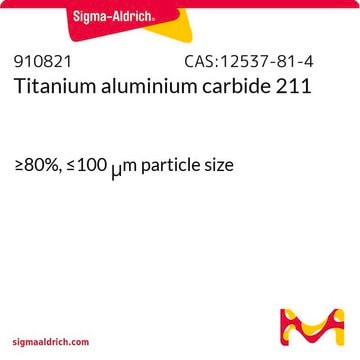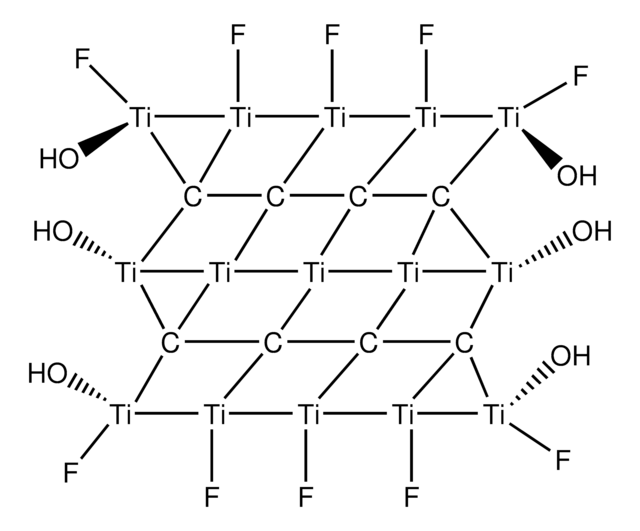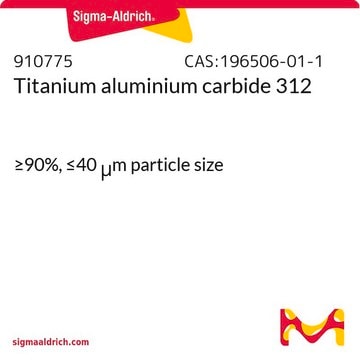910759
Titanium aluminium carbide 211
≥80%, ≤40 μm particle size
Synonym(s):
MAX Phase 211, Ti2AlC
About This Item
Recommended Products
assay
≥80%
form
powder
color
dark gray
particle size
≤40 μm
Looking for similar products? Visit Product Comparison Guide
Application
Ti2AlC MAX phase exhibits high-temperature stability, thermal shock resistance, damage tolerance, crack-healing capability, good machinability, and exceptional oxidation resistance (immune to thermal cycling), and was widly used for high-temperature applications such as high-temperature heating elements, gas burner nozzles and industrial die inserts.
MAX phases are important precursors for synthesizing MXene, a highly conductive 2-dimentional nanomaterial. MXenes are produced by selective etching of the A element from the MAX phases. It combine the metallic conductivity of transition metal carbides with the hydrophilic nature of their hydroxyl or oxygen terminated surfaces. Ti2AlC MAX phase is one of the most used MAX phase for MXene (Ti2CTx).
Storage Class
13 - Non Combustible Solids
wgk_germany
WGK 3
flash_point_f
Not applicable
flash_point_c
Not applicable
Certificates of Analysis (COA)
Search for Certificates of Analysis (COA) by entering the products Lot/Batch Number. Lot and Batch Numbers can be found on a product’s label following the words ‘Lot’ or ‘Batch’.
Already Own This Product?
Find documentation for the products that you have recently purchased in the Document Library.
Articles
Optimizing the synthesis of high-quality 2D MXene flakes for 3D ink printing is essential to such technological developments as printable and flexible electronics.
Advanced technologies for energy conversion and storage aim to improve performance and reduce environmental impact.
Professor Gogotsi and Dr. Shuck introduce MXenes: a promising family of two-dimensional materials with a unique combination of high conductivity, hydrophilicity, and extensive tunability.
Review on 1D vdWHs: Discusses materials, synthesis, optoelectronic applications, challenges, and future perspectives for 1D vdWH-based devices.
Our team of scientists has experience in all areas of research including Life Science, Material Science, Chemical Synthesis, Chromatography, Analytical and many others.
Contact Technical Service








